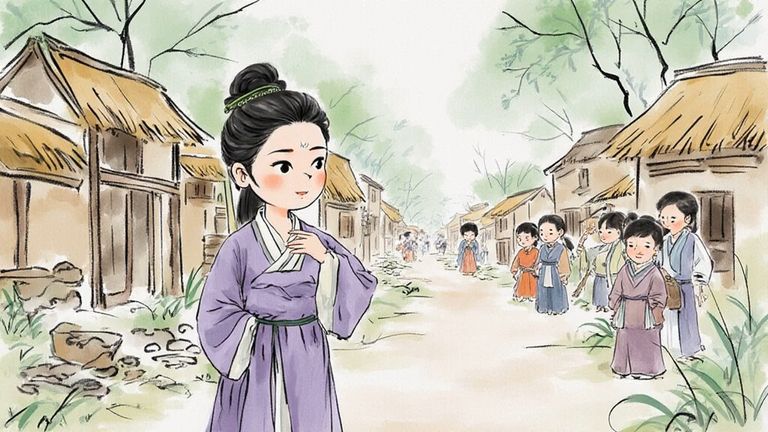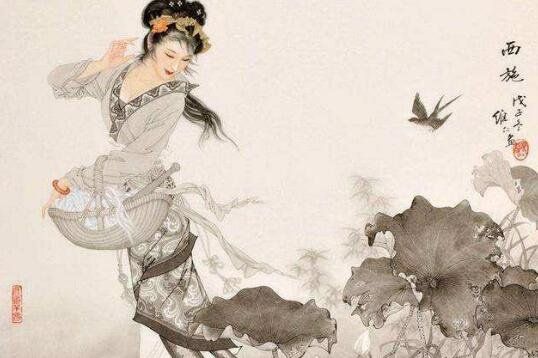
During the Spring and Autumn Period, there was a beautiful woman named Xishi in the state of Yue, who was highly praised for her unparalleled beauty. Her neighbor Dongshi, feeling ashamed of herself, often imitates Xishi in clothing, posture, and movements in order to add some beauty. However, she did not realize that true beauty cannot be achieved solely through imitation.
One day, Xishi walked with both hands covering her chest and frowning due to chest pain. Despite her sickly appearance, she appeared even more charming. This scene happened to be witnessed by Dongshi, who silently recorded every movement and posture of Xishi. In the future, Dongshi began to imitate, walking with his hands covering his chest and frowning. However, her imitation backfired, leading people to mistakenly believe that she had fallen for a demon. Even wealthy families closed their doors tightly, while poor families fled far away with their wives and children.
In the story, Xishi became the focus of attention with her natural beauty and extraordinary temperament. Her beauty lies not only in her appearance, but also in the natural charm emanating from within. And Dongshi, an ordinary woman, harbored endless longing for Xishi's beauty. She tried to gain the same attention and praise by imitating every subtle movement of Xishi. However, when she deliberately put on Xi Shi's frail posture, it only drew ridicule and confusion from others.
This is not because Dongshi is not beautiful enough, but because she ignores the importance of beauty as a soul imprint. Beauty is unique, and everyone is a one-of-a-kind being with their own unique value.
This idiom is not only a satire on blind imitation, but also a profound call for personal unique value. It reminds us that in the pursuit of beauty, we should pay more attention to self-awareness and personality expression, rather than just pursuing superficial similarities. We must bravely walk our own path, let the inner light illuminate the path ahead, and let life shine with the most beautiful radiance.
春秋时期,越国有个美女叫西施,因其绝世美貌而备受赞誉。她的邻居东施,因自惭形秽,便时常模仿西施的服饰、姿态和动作,以期能增添些许美感。然而,她并未意识到,真正的美丽并非仅仅靠模仿就能得来的。
有一天,西施因心口疼痛而双手捂胸、皱眉走路。尽管她面带病容,却更显得楚楚动人。这一幕恰巧被东施看见,她默默记下西施的每一个动作和姿态。以后,东施便模仿起来,双手捂胸、皱眉走路。然而,她的模仿却适得其反,让人误以为她中了魔,甚至有钱人家都紧闭大门,贫寒人家则带着妻儿远远躲避。
故事中的西施,以其天姿国色和不凡气质成为众人瞩目的焦点。她的美,不仅在于容貌,更在于那份由内而外散发的自然韵味。而东施,一个普通的女子,对西施的美怀有无尽的向往。她试图通过模仿西施的每一个细微动作来获取同样的关注与赞美。然而,当她刻意摆出西施那病弱的姿态时,却只引来了旁人的嘲笑与不解。
这并非因为东施不够美丽,而是因为她忽略了美作为一种灵魂印记的重要性。美是独一无二的,每个人都是独一无二的存在,拥有着自己独特的价值。
“东施效颦”这一成语不仅是对盲目模仿的讽刺,更是对个人独特价值的深刻呼唤。它提醒我们,在追寻美的过程中,应该更加注重自我认知与个性的展现,而非仅仅追求表面的相似。我们要勇敢地走出自己的道路,让内在的光芒照亮前行的路,让生命绽放出最美好的光彩。
